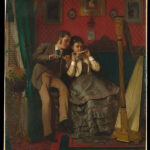 Stevie Wonder performing passionately at the piano
Stevie Wonder performing passionately at the piano
Stevie Wonder stands as a monumental figure in music history, a prodigious talent whose career began in childhood and has inspired generations. Like Mozart in 18th century Europe, Steveland Morris, the artist known globally as Stevie Wonder, emerged in late 20th century America as a musical force that transcended genres and expectations. Born into humble circumstances in Saginaw, Michigan, and facing blindness from birth, Stevie Wonder’s journey is a testament to his extraordinary resilience and innate musicality. His initial instrument, a toy harmonica gifted by an uncle, was just the start of a remarkable odyssey that led him to classical training and ultimately to a lasting legacy with Motown Records, where he remains to this day. Beyond his profound musical influence on countless artists, Stevie Wonder played a pivotal role in making Dr. Martin Luther King Jr.’s birthday a national holiday, showcasing his commitment to social change alongside his artistic genius.
My personal introduction to the magic of Stevie Wonder’s music began in childhood, with my mother’s lullabies of “My Cherie Amour” and “Isn’t She Lovely.” His 1987 album Characters became a constant soundtrack during my formative years, deeply embedding itself in my musical consciousness. Later, discovering his Music Of My Mind album at age 14 in a record store, I was immediately captivated by its innovative sound. This album, a creative turning point in his career, revealed music crafted not just from melodies, but from intricate rhythms and sonic textures. Tracks like “Love Having You Around” and “Girl Blue” possessed an almost otherworldly sonic quality, pushing the boundaries of what popular music could be.
Experiencing Music Of My Mind evoked a feeling of pure joy, a sensation that resonated deeply, particularly amidst the often-gloomy musical landscape of the early to mid-1990s. It was a tangible joy, an immersive and uplifting experience. Stevie Wonder’s music offered an escape and an inspiration, demonstrating the power of imagination and originality. It sparked a desire to embrace creativity and to seek out imaginative thinking, influencing my perspective on the world and setting me on a path of continuous exploration. This transformative experience ignited a quest to absorb every piece of music Stevie Wonder had ever created, from his early hits in the 60s to his contemporary works.
One of the most compelling aspects of Stevie Wonder’s songwriting is his unique approach to melody and harmony. His compositions often exhibit a sophistication reminiscent of jazz and classical masters like George Gershwin, Duke Ellington, or Bach, setting him apart even from another iconic blind musical genius, Ray Charles. As I began writing my own song lyrics, Stevie Wonder’s song structures became a subconscious template, influencing my own creative process. Furthermore, his journey of self-realization, as expressed in his 1973 song “Visions” with the profound line “I’m not one to make believe/I know that leaves are green,” reveals a remarkable depth of perception. This lyric, from a man who has never seen green, highlights his extraordinary ability to blend dreaminess and realism, a captivating duality in his artistic persona.
Beyond his musical achievements, Stevie Wonder’s humanitarianism is equally inspiring. His music has consistently addressed important social issues. His 1979 soundtrack for A Journey Through The Secret Life Of Plants explored the hidden world of plant communication, while his involvement in “We Are The World” and his activism against apartheid in South Africa demonstrated his commitment to global issues. His participation in “That’s What Friends Are For” and the Rent soundtrack furthered HIV/AIDS awareness. Stevie Wonder’s song “Happy Birthday” is perhaps one of his most direct and impactful contributions to social change. Released in 1980, this song was not just a celebratory tune; it was a powerful anthem in the campaign to establish Martin Luther King Jr.’s birthday as a national holiday in the United States. The song’s upbeat rhythm and universally understood message of celebration were strategically employed to raise awareness and garner support for this important cause. It became more than just a birthday song; it evolved into a rallying cry for social justice and recognition of Dr. King’s legacy.
Stevie Wonder’s “Happy Birthday” song exemplifies how music can transcend entertainment and become a vehicle for social progress. It’s a testament to his artistry that he could craft a song so catchy and universally appealing, yet imbue it with a profound social purpose. This ability to blend musical brilliance with meaningful messages is a hallmark of Stevie Wonder’s career and a key reason why his music continues to resonate deeply with audiences worldwide. His dedication to using his platform for positive change, coupled with his unparalleled musical talent, cements his legacy as not just a musical icon, but also a significant humanitarian figure. Though he may record less frequently now, his impact remains undiminished, and his songs, especially “Happy Birthday,” continue to inspire and uplift.

